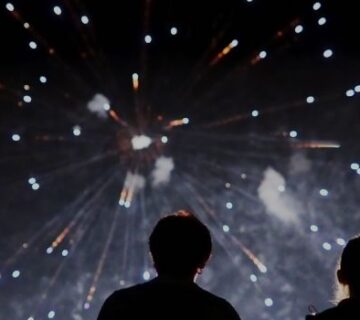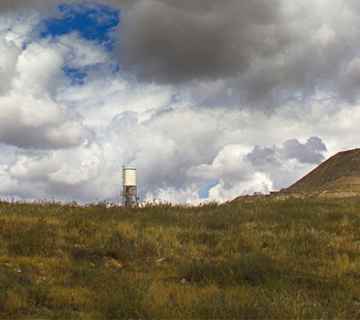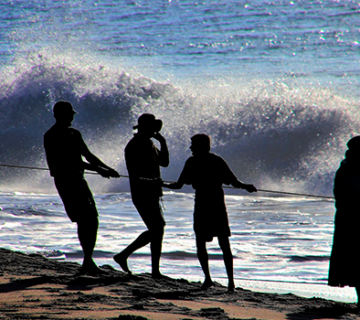 History and prophecy, the two eyes with which humanity contemplates its scene in the drama: one looks to the past and the other to the future, so that it can regulate the present. You could say that prophecy is God’s view and history is man’s. Thus history is an epitaph of the fallen and prophecy the longing for freedom from death and new life, a longing for peace.
History and prophecy, the two eyes with which humanity contemplates its scene in the drama: one looks to the past and the other to the future, so that it can regulate the present. You could say that prophecy is God’s view and history is man’s. Thus history is an epitaph of the fallen and prophecy the longing for freedom from death and new life, a longing for peace.
And Christ came. And over his cradle, in the mists of time, the angels sang: “Glory to God in the highest and peace to men on earth.” What is glory for the Lord God in Heaven is peace for men on earth: Peace is the glory of men; glory is the peace of God.
Now Christ indicates peace. “Christ is our peace. . . peacemaker,” come “to bear the good announcement of peace,” as Paul says to the Romans, who were a people of war. His revolution centers on the discovery of the brother, made by the light of charity, and peace is the fruit of charity. His law is forgiveness, and forgiveness replaces the impulses of war. War denounces, in those who promote it, a practical atheism, a rebellion against God.
One of the Gospel beatitudes sings: “Blessed are the peacemakers, because they will be called the sons of God.” Peacemakers are makers of peace. For peace must be made, it is produced and it is the most precious product of human civilization. The Christian is a producer of peace that reconstructs the fabric of time indefinitely. He continually reconstructs life, “making war” on war, as Pius XII says, in order to combat his enemy which is death..
But there is peace and there is peace. . One is life and the other is death. “My peace I leave with you,” Jesus says, “I give you my peace, not the peace that the world gives.”
The world’s peace is imposed by war; Christ’s peace is the gift of love. In this respect, both – peace and war – spring from the heart of each one of us. Too many of the world’s peoples still continue to repeat with the prophets: “We wait for peace and we do not have it; we await the hour of healing and remedy for the ills we have suffered, and behold: new tumors and disturbances are appearing; we wait for the light, and look at us still in darkness. . . We await justice and it’s not there; health, and it is still far from us.” Civilization and peace identify with each other in the same way war and barbarism accompany each other.
A prophecy is needed today – a vision of love and reason – to shout on the heads of those responsible the imminent dangers to which their foolishness, their fear can lead us. If the body of humanity flows with the Blood of Christ, It shall free it of evil. To the city of man today as to the Jerusalem of then Jesus continues so say: “Oh, if you also knew – especially this day – what would bring you peace!” Precisely on this day, for there is no more time to lose. What is conducive to peace is human rationality together with the divine rationality, and this is substantially what love is. The Blood of the Redemption which makes us consanguineous with Christ and therefore with each other, reassembles as a family: in community, able to reach unity. Moreover, a universal unification seems to be already underway. The ideals of freedom, justice and peace are common to all, elevating the black and the yellow, proletarians and workers of every land and condition. Upon their agitation which is forming the dramatic history of our times, the prophetic invitation of Christ is all the more urgent: “May they all be one!”
Igino Giordani


 Italiano
Italiano Español
Español Français
Français Português
Português


